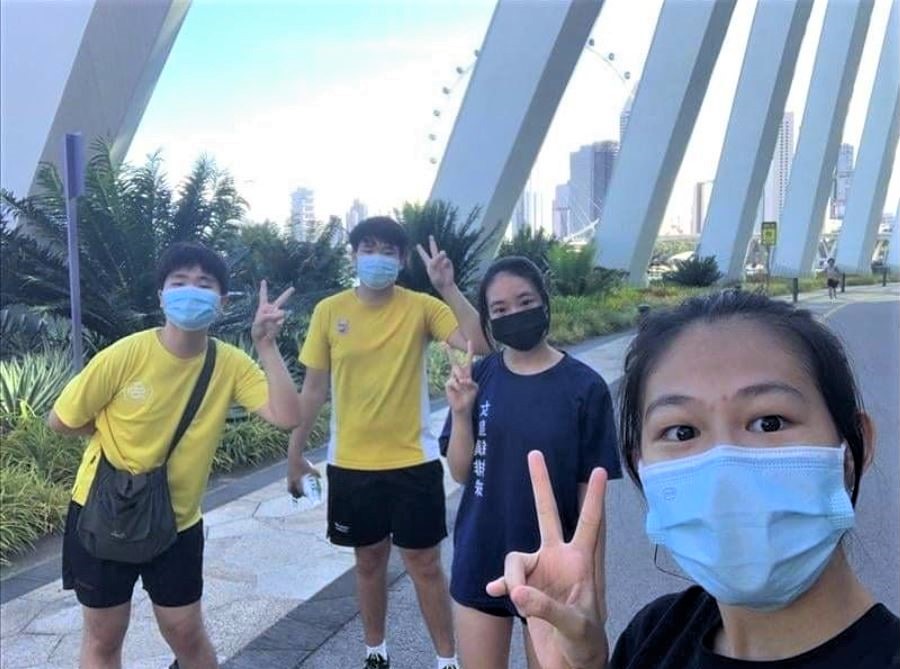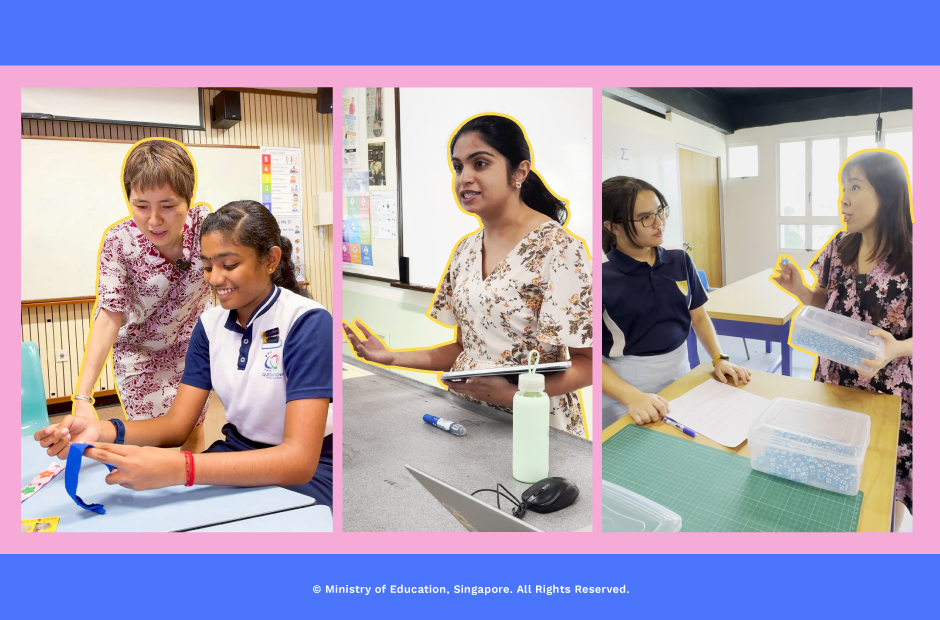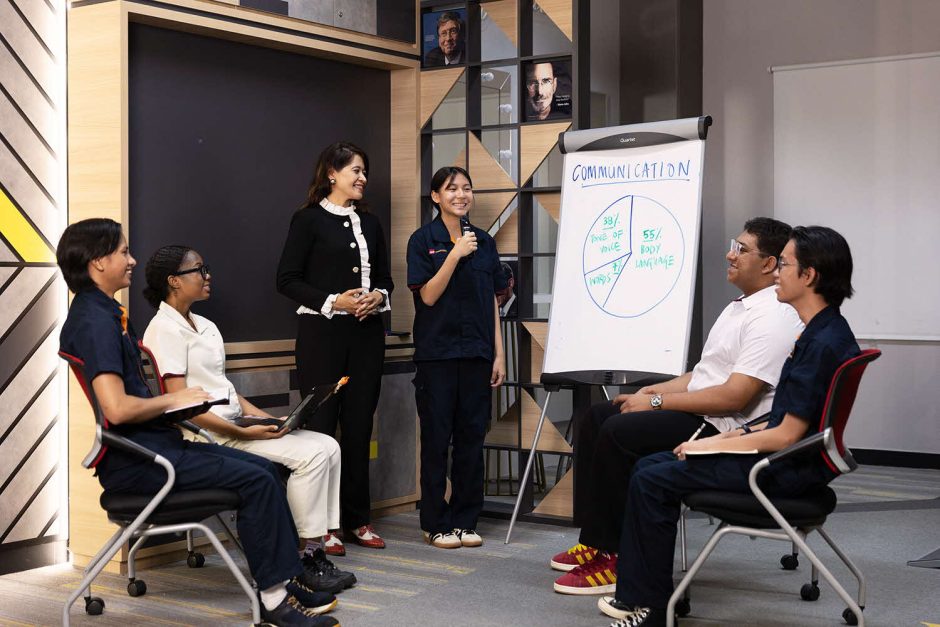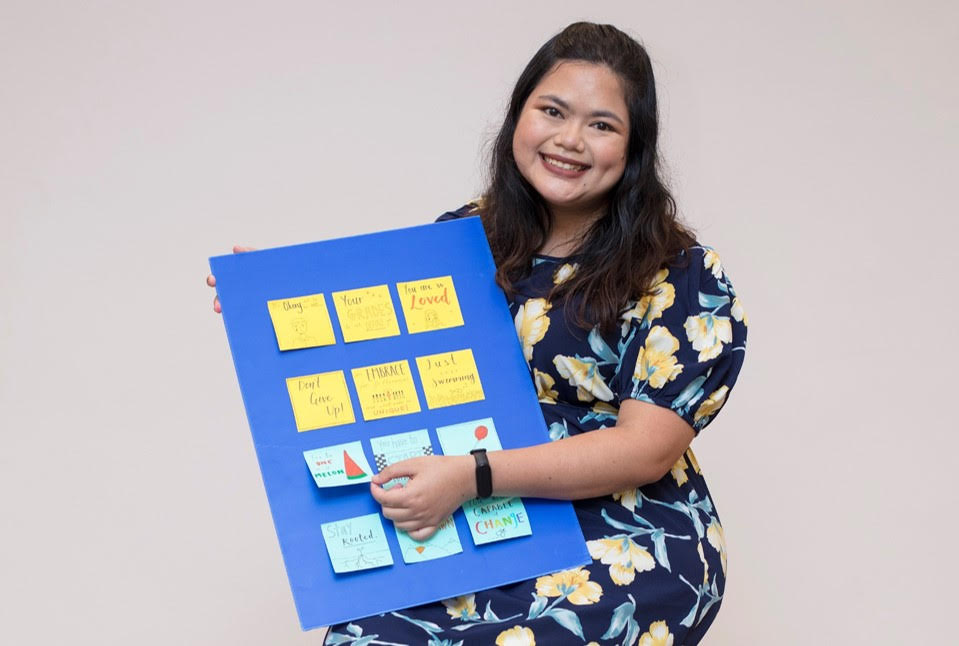Term 4 is often a hectic time for students in Singapore as they hunker down to hit the books and prepare for their upcoming examinations. But at Queenstown Secondary School, students are heading outdoors to clock up some miles for the school’s annual cross-country race. Due to COVID, they are running on their own, or with a few classmates.
Strange decision given that exams are around the corner? Not at all. In fact, the timing of the event was deliberate, says Mdm Rasidah Bte Rahim, Principal of Queenstown Secondary School. “We tell students, go for a run, or just a walk outside. The message is that they need to set aside time to relax. Physical activity is important to our mental and physical well-being, and we should not neglect it – even during the exams!”
What was heartening to Mdm Rasidah was the enthusiastic response to the event from both students and teachers.
Sec 5 student Marcus Teh shared, “As we exercised together, we had the opportunity to talk about our problems, chitchat with each other and laugh together. It kept us motivated.”
This positive response is the result of an ongoing school-wide endeavour to help students look beyond grades and build self-worth and resilience.
A caring and enabling school culture, focused on growth
At the centre of this effort is the idea of Growth Mindset, which is the belief that one’s abilities can be developed through effort, good strategies, and feedback – rather than innate talent.
This is something that is not only taught through Character and Citizenship Education (CCE) lessons, where students are taught to bounce back from challenges, seek help, and reflect on their experiences in working towards their best selves. Teachers also try to inculcate this mindset in their students through their daily interactions in school.
“Some of our students come to school with their own baggage,” says Mdm Rasidah. “This can be due to their family circumstances, or learning challenges that lead them to lack motivation. It is important to teach them to reframe their mindset, and focus on the areas they can control and improve.”
How does this look in everyday school life? Year Head Ms Kang Poh Geok, who had only joined the school at the start of 2021 explained: “I was new to the school, but I could see it in what the teachers say and do. Whether it is at assembly, or in the lessons I observed, teachers echo the same message: ‘We are here to help you grow, at your own pace’.
“We hear the students tell themselves, and each other in class, or in their CCAs – we may not be there yet, but we have the chance to do better!”
Goal setting
Every term, students in every form class set goals and reflect on their progress. The goals need not be just academic ones. Students can set goals about their CCA, a hobby, or even a personal quality – like being more confident to speak up, for example.
Before the exercise, teachers share what success looks like to different people. For some, it may mean putting in their personal best and not giving up. For others, success may be about acts of service that improve the lives of others. This sharing encourages students to think about their own goals in life, take a longer-term view – and not just fixate on their next exam.
“We want to expose students to different meanings of success,” explains Ms Kang. “It’s not just academic. They can formulate their own plans, reflect on what they have learnt, and most importantly, what they can do about it next.”
These reflections are working documents that teachers refer to during individual or small group check-ins with the students. They are also passed on to Form teachers taking over in the following year, for them to understand the students and their aspirations better.
“In a way, these reflections are like an individual portfolio and helps track how much the student has grown over the years,” says Ms Kang. “We hope that at Sec 4-5, the students will look back at them and feel proud of their progress.”

Affirmations
Across the school, students are recognised for character and values that are taught in CCE lessons. This makes the messages real for the students.
For instance, Mdm Michelle Phoo, a Secondary 5 Form Teacher, gives out monthly awards to recognise students who exhibit the school values. A student who had failed a test, but shown improvement, for example, would be praised for his resilience. Another student, who had improved on her late-coming behaviour, was also recognised.
“She was rarely late again after that!” laughed Mdm Phoo. “It is a small gesture to motivate the students, but they are happy to know that their effort was seen by the teachers. They also understand that they can find ways to overcome their problems, and that’s important.”
Building resilience outside the classroom
Co-Curricular Activities (CCAs) are another platform, where students can discover their strengths and overcome challenges in a safe space. While coaches instruct the students on the finer techniques of their sport or art, their CCA teachers make it a point to meet the students afterwards to facilitate and guide their learning.
As teacher in-charge of the school’s Scouts unit, Mdm Phoo has seen her students struggle many times when it comes to planning the CCA sessions, or larger projects like the annual camp.
“Setbacks are common,” she shared, “but we give them feedback, so the team can figure out their mistakes and improve. That’s how the students learn resilience. When they are faced with a challenge next time, they will look back and think – it’s difficult, but it’s possible if we work together.”
Other school events, such as the cross country, outdoor camps and competitions, provide additional opportunities for students with diverse interests and strengths to shine and grow in confidence.

Schools expose students to a variety of challenges, through cohort-wide activities and CCAs, for them to step out of their comfort zone and achieve small successes with the help of their friends. (Photos taken pre-COVID)
Peer support and buddy system
Apart from these efforts, the school recognises that there may still be moments when students may feel overwhelmed and need more help. This can be triggered by many factors, including family problems, exam stress or even a falling-out with a friend. To ensure that such students receive timely support, the school taps on the help of their peers.
Mdm Rasidah explains the rationale, “As much as our teachers are close to the students, they can’t be everywhere. Their peers are often the ones who notice when one of their friends seem down, or unwell.”
Like other schools, Queenstown Secondary has appointed students as Peer Support Leaders (PSLs), who are trained to look out for signs of distress among their peers, listen to their concerns without judgement, and alert trusted adults if necessary.
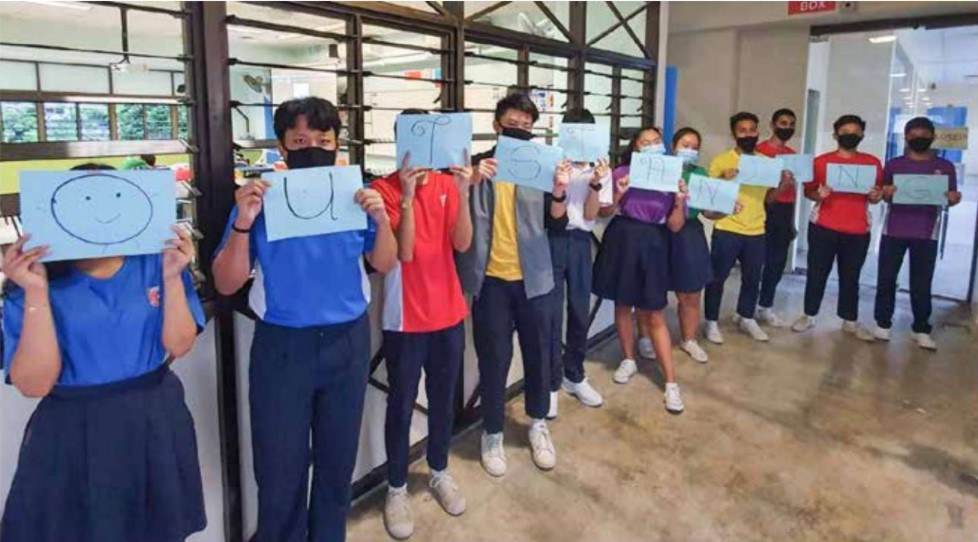
In Queenstown Secondary, students take the lead to cheer each other on!
The school has taken a further step, by introducing a buddy system in every class. Friends naturally pair up, while teachers approach a few responsible students to help those who find it difficult to find a buddy on their own.
“We know that we can’t force friendships, but teachers will look at the class dynamics and explain to the buddies what their roles are, and why it is important,” shared Ms Kang. “More often than not, they are willing to help.”
Secondary 2 Form Teacher Mr Muhammad Fazari Othman shares his experience with the buddy system, “I tell the students that they are my ‘watchful eyes’, and encourage them to keep a look-out for signs of distress – for example, if their friends are posting about self-harm or negative thoughts on social media.”
He recounted an incident when a student was absent for a few days without a medical reason.
“I initially assumed she was wilfully absent. But her classmate shared with me that the girl was facing some emotional issues after her best friend transferred out of the school. With that information, we were able to arrange for suitable help for the student, and not scold her and add to her distress.”
Building relationships
Youths’ mental well-being has increasingly been in the spotlight in recent years and schools are talking about these issues more. This is partly due to the refreshed CCE curriculum being rolled out this year, which includes a greater focus on contemporary issues such as mental health and cyber wellness.
However, the teachers share that the school environment and culture play a big part in whether students will reach out for help when they need it.
For instance, while his Secondary 2 students know that everyone can feel stressed at times, Mr Fazari feels that some of them are still hesitant about seeing the school counsellor. Mdm Phoo, on the other hand, shares that her Secondary 5 students have no such inhibitions.
“My class likes to see the counsellor! We shared with them that you don’t have to see a counsellor only when you face a crisis – it can be preventative too. I think a few of them found that the counsellor was able to help them with their anxiety, and shared about it with the class. Such personal accounts from friends are persuasive!”
The teachers feel the main difference is that the Secondary 5 students have been in the school for many years, and have learnt to trust the teachers, the school counsellor and each other over time.
“It’s the relationships,” say Mdm Rasidah. “It’s in all the little things that show we care, that we are listening to you. It’s in every little challenge that they have overcome that helps them say ‘I am worthy, and I can do it!’.



